Arizona superintendent candidates have promised a lot. What can they deliver?
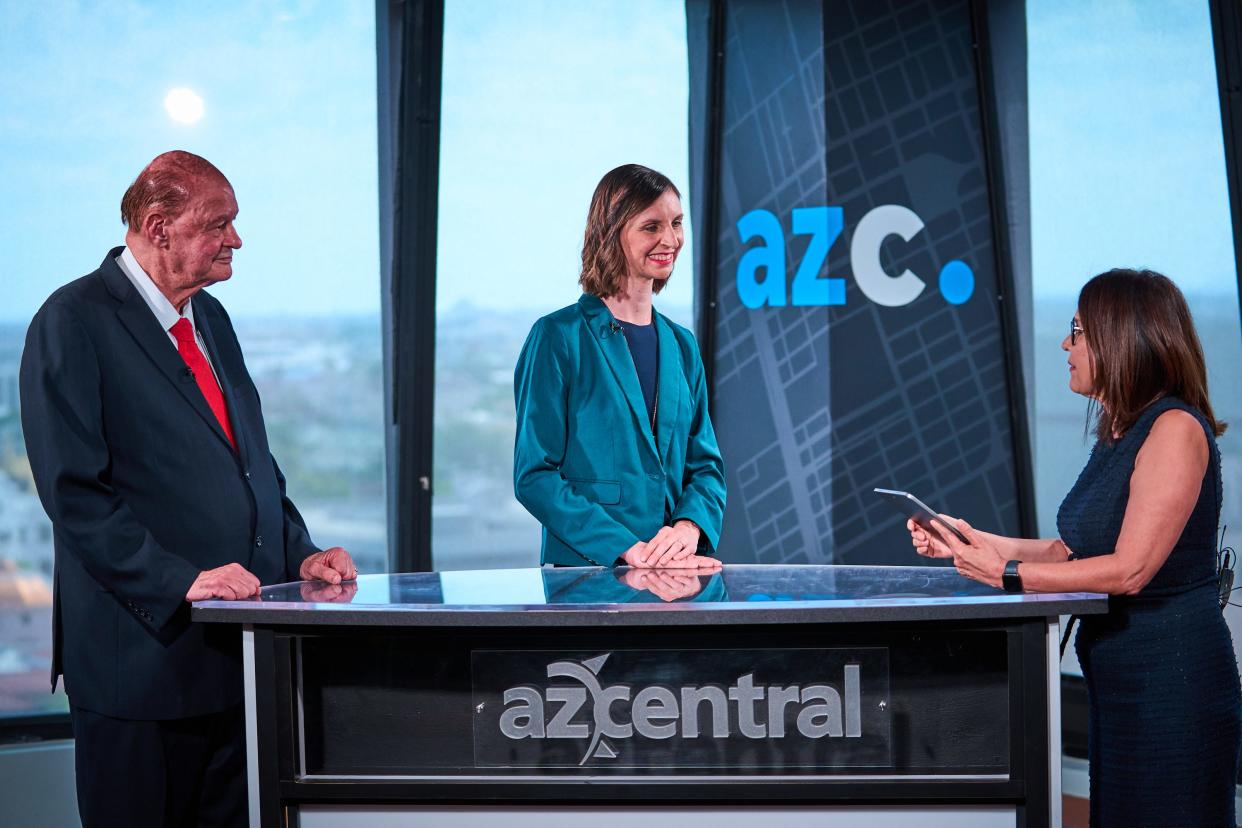
- Oops!Something went wrong.Please try again later.
The race for Arizona’s next superintendent of public instruction has revolved around the gravitational pull of political controversies related to sexuality, gender, mental health and race — issues the schools chief has little direct authority to control.
“You really don’t have a lot of power, per se,” said Jaime Molera, a consultant and businessman who was Arizona’s superintendent of public instruction from 2001 to 2003. “A lot of it is a bully pulpit.”
The role of superintendent is largely an administrative job, not a policy-creation one.
Although Arizona’s superintendent can shake up educational priorities through public comment, the role’s sphere of influence centers on more pedestrian pursuits like overseeing teacher certification, doling out funds, lobbying the Legislature and serving on the State Board for Charter Schools and the State Board of Education.
Voter guide: Where to drop off your Arizona ballot and how to track it
In contrast, the state education board is responsible for determining minimum academic standards, deciding criteria for promoting students from grade to grade and setting the course of study, which includes subjects required by law. Other than the superintendent, Arizona’s Board of Education members are appointed to staggered terms by the governor. Most members of the charter board are governor-appointed, too.
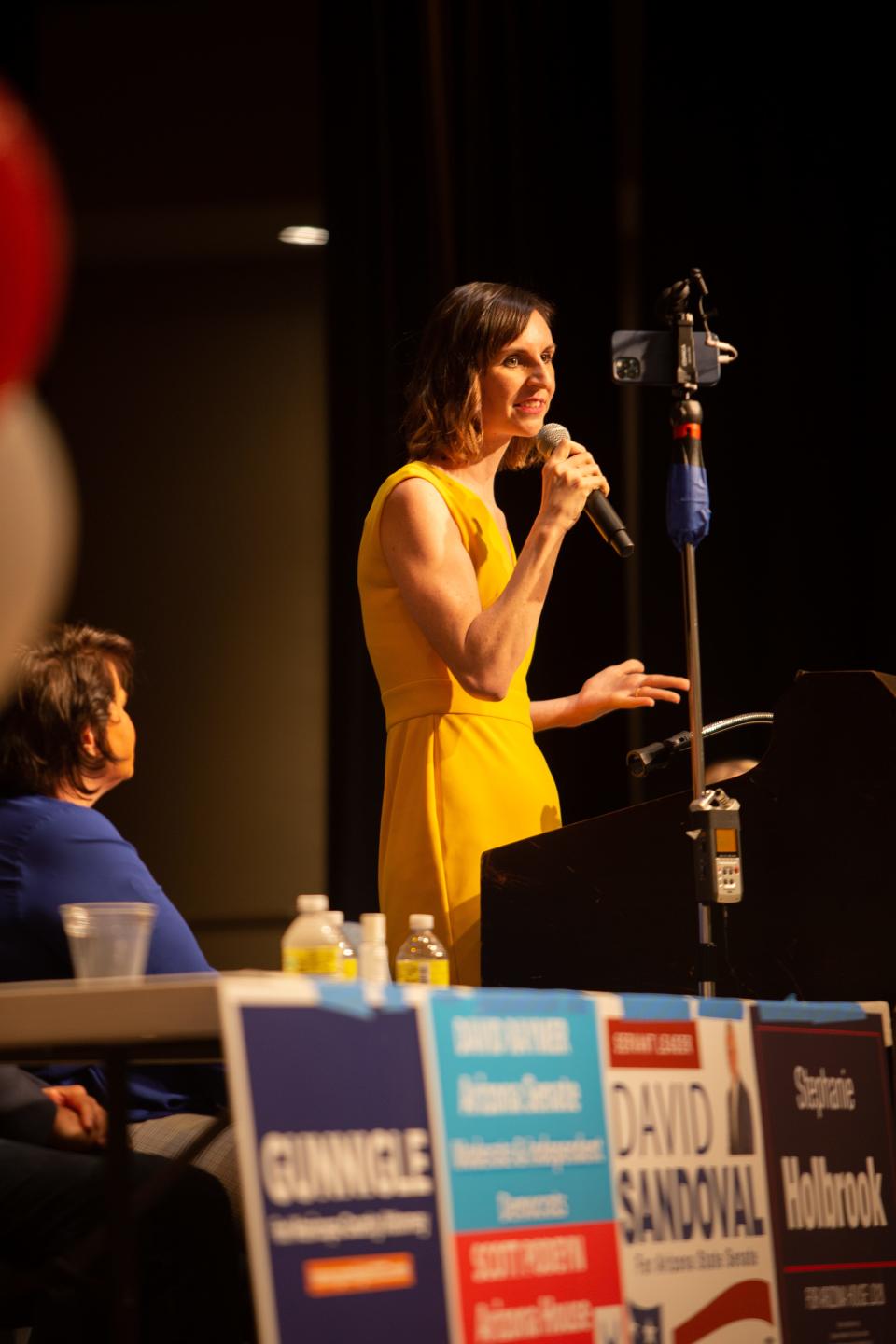
Yet incumbent Democrat Kathy Hoffman and former two-time schools chief Republican Tom Horne offer sweeping, significantly different visions for Arizona schools.
How Arizona’s next superintendent of public instruction will use their platform and whether they’ll be working with — or despite — the governor, state boards and Legislature will be instrumental in making or breaking the success of those visions.
Arizona’s schools are facing unprecedented upheaval and challenges. The new superintendent will supervise the biggest expansion of school vouchers in Arizona history, confront a vast teacher shortage and grapple with the chronic underfunding of public education.
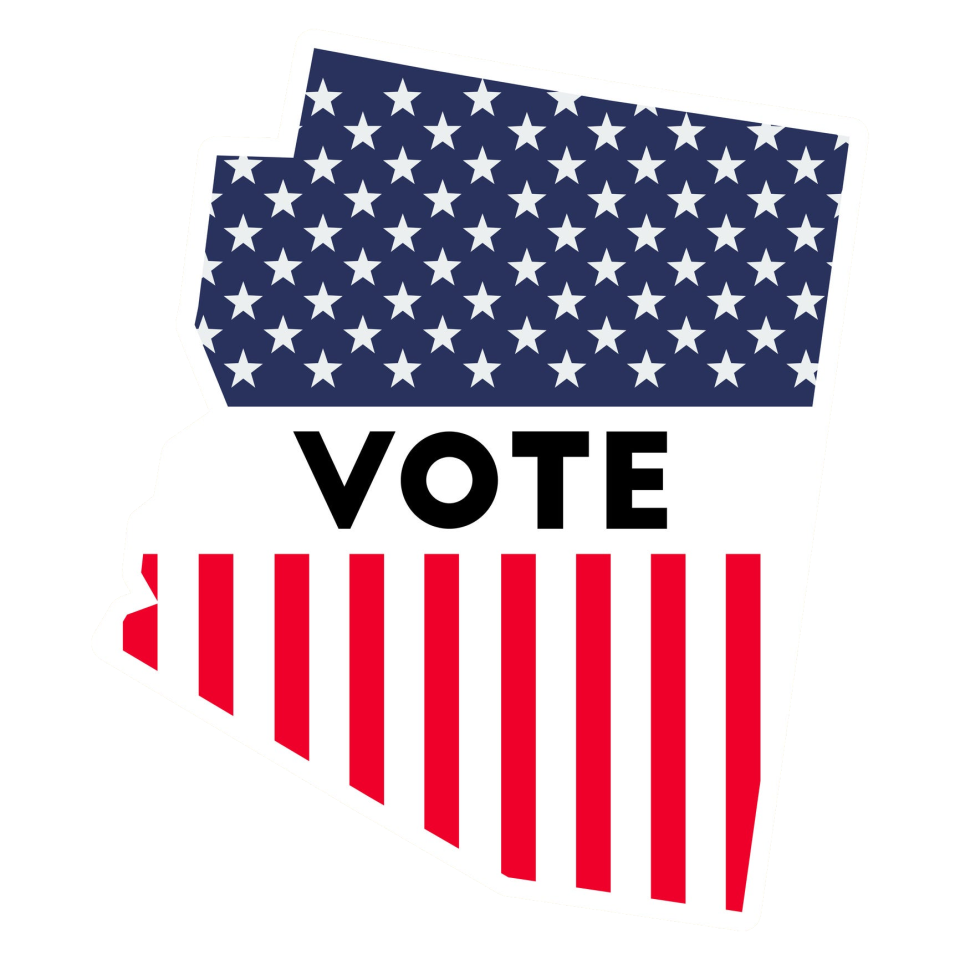
Election guide: November 2022
City races | School boards | State | Governor
| Ballot measures | Federal races | How to vote
“The majority of the electorate still thinks that our schools are underfunded and our teachers are underpaid,” said political analyst and pollster Paul Bentz. “School funding is a huge issue.”
Contrasting leadership styles
Both Hoffman and Horne have held the job before. They brought different leadership styles to the office but also had different levels of influence with the Legislature and state leadership.
More on the candidates: Who is running for Arizona superintendent? What to know about Kathy Hoffman and Tom Horne
Horne, who has also served a term as Arizona attorney general, is a practicing attorney who litigates police brutality cases while crusading against critical race theory and social-emotional learning. He aggressively champions provocative issues, echoing national Republican talking points, including accusing schools of teaching race and history in a biased manner.
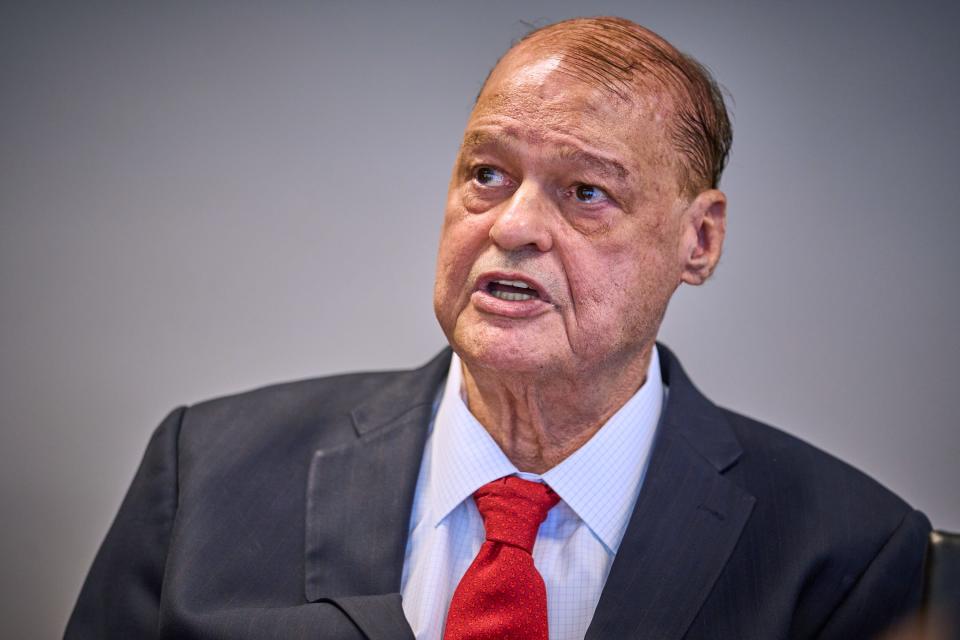
In his previous round as schools chief, prompted by lessons in the Tucson Unified School District, he lobbied a willing Legislature to pass a law that restricted ethnic studies programs. A federal court later ruled the ban violated students’ constitutional rights. In 2015, Tucson’s superintendent said the district had expanded its “culturally relevant” curriculum and now runs a Mexican American Student Services program to support students.
This time, Horne has made arguing against critical race theory a central part of his campaign. Critical race theory is a college-level concept not typically taught in K-12 settings that helps academics examine the impact of racism on social systems. In recent years, the phrase "critical race theory" has been co-opted by right-wing commentators and become shorthand for any discussions with race-based framing.
Back in the race: Tom Horne leads GOP primary for schools chief; winner to square off against Kathy Hoffman
Horne has said he will back further efforts to outlaw teaching the concept and create a hotline that would allow people to call in and report educators who may have referenced it in classrooms. A recent legislative ban on some race-related instruction was struck down by the courts because it was included in a budget bill.
“Tucson had a critical race theory program, and I destroyed it,” said Horne. Some teachers, he said, “feel that their job is to promulgate their ideology on a captive audience. That is not the proper role, and we have to do something about it.”
Margaret Dugan, who worked under Horne as deputy superintendent of education from 2005 to 2010 and then as operational chief of staff when Horne was attorney general, said she first met Horne around 2002 while an initiative to eliminate bilingual education in Arizona was being organized. Horne was careful to listen to anyone who voiced concerns, she said. She is now his campaign manager.
Previously: 5 takeaways from Arizona schools chief debate
“He is a gentleman,” said Dugan, who admires Horne’s piano playing. “He is very talented, not only academically but also musically.”
Hoffman, on the other hand, does not court controversy. She is a speech pathologist who steered Arizona schools through the unsettling and often trying path of COVID-19’s onset. She came to power with the energy of Arizona’s 2018 #RedForEd teacher labor movement.
But Hoffman hasn’t benefited from a politically aligned Legislature as Horne did during his final years as superintendent. While she has testified regularly before lawmakers, her words were often unheeded. Indeed, the Republican majority has repeatedly approved bills she vocally opposed.
Hoffman has instead used her time in office to direct grant funds to hire more counselors and expand internet access to rural communities.
Hoffman invested $1.5 million to bring high-speed internet access to rural Arizona students by extending existing broadband capacity at schools and libraries to students’ homes. She also funded the first special education cost study since 2007 and created committees that weigh in on the needs of discrete student populations, including LGBTQ students.
“When I was elected in 2018, it was the first time in over 20 years that we've had an educator leading the Department of Education,” she said. “The issue that Arizona families really care about is having highly effective teachers with rigorous instruction no matter where they live in the state.”
Reelection bid: Kathy Hoffman, Arizona superintendent of public instruction, is ready for another run
Marisol Garcia, president of the Arizona Education Association, said she has found Hoffman to be a detail-oriented leader who’s “aware of everything that’s going on” within the Arizona Department of Education.
That helped educators across the state trust Hoffman, even at the start of the COVID-19 pandemic, which was a time of great uncertainty for schools, she said.
“A lot of educators across the state felt like, ‘That's the only person who's actually listening to us and interested in what's happening,’” Garcia said. “She’s very accessible.”
The political action committee of the Arizona Education Association, called the Fund for Public Education, has endorsed Hoffman and held several campaign events with her.
Promises on Arizona’s teacher shortage
Arizona continues to have a drastic teacher shortage. A survey by the Arizona School Personnel Administrators Association of 130 school districts and charter schools found that more than a quarter of the teacher openings that needed to be filled for the 2022-2023 school year were still vacant in September. The association said about four of every 10 vacancies that existed before the school year started were filled by teachers who did not meet full certification requirements.
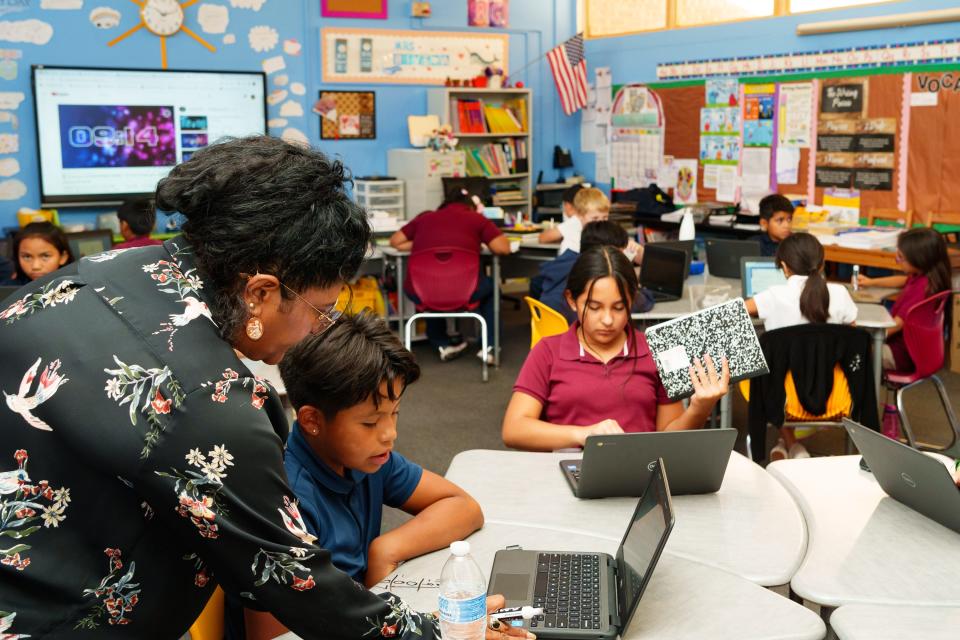
This is a long-running trend. Since 2016, the survey has found that roughly 25% of teacher vacancies remain unfilled weeks into the school year.
The school superintendent can offer suggestions for certification changes to the State Board of Education, lobby the Legislature to improve teacher pay and use their platform to amplify what they see as the dynamics impacting teacher retention.
Republican John Huppenthal, who was state superintendent from 2011 to 2015, said that the superintendent could bring innovative solutions before the Legislature. He suggested that offering teachers bonuses in clear dollar amounts, rather than percentages of their pay, would help teacher retention, and the next superintendent could lobby lawmakers for that change.
"If we had started this a decade ago, teacher losses would be half of what they are currently," Huppenthal said.
More on the crisis: 'My teacher just left': How Arizona's teacher shortage affects families
Hoffman has taken several steps to increase the number of teachers and keep existing teachers on the job, most through her access to pots of money she had the autonomy to spend. Her administration used $5 million in federal pandemic relief funding to create the Arizona Teacher Residency, which pays teachers in training while they study. She funneled another $21.3 million in federal relief funds to supplement the School Safety Grant Program and gave schools the option to hire police officers or counselors. She also created an Educator Recruitment and Retention Team within the Arizona Department of Education.
Garcia applauds those efforts and said the superintendent plays a unique role in highlighting teacher successes and programs that are doing well.
"It's really important to have someone who has been an educator ... lift up stories of what's happening in Arizona schools," Garcia said.
Horne has not published a teacher retention plan but has promised to encourage tougher discipline policies in Arizona classrooms. This will help stem the teacher shortage, he said, because he believes out-of-line students are a significant driver of teacher dissatisfaction.
He has also spoken critically of social-emotional learning, an educational framework that encourages students to learn interpersonal skills and self-control but has come under fire from conservatives. He would have little direct authority as superintendent, beyond vocal disapproval, to prevent schools from using the teaching model. But, with allies in the Legislature, he could help push a reform bill, much as he did to prohibit ethnic studies programs.
Horne said his understanding of social-emotional learning comes secondhand from teachers. He said teachers have told him the framework forces them to play “dumb games.” He said these were described to him as students racing with an egg on a spoon and teacher training exercises where teachers are asked to compare themselves to animals.
“In the old days, when teachers came a week early to school, they were given data, and they planned out their lessons to deal with, based on the data, how to improve the performance of the kids,” he said of prep time before the school year. “Now, they come a week early to school, and they do social-emotional learning. So, they sit around a table, and they talk about what if they were an animal.”
Responsibility for voucher program
The Arizona Department of Education oversees the Empowerment Scholarship Program. For years, the voucher program served about 12,000 students in specific populations, like special education students. They were provided public dollars to attend private schools or receive tutoring at home.
But this summer, the Legislature expanded the program to allow any Arizona family to apply for funding. Some 31,800 applicants have already requested funding under the universal school voucher expansion. According to the state education department, about 80% of these applicants were not previously enrolled in Arizona public schools.
Lots of applicants: Applications for school vouchers at nearly 22,500 so far, Education Department says
Voucher supporters say all students should be able to attend private schools if they wish, even if their families cannot afford it. Opponents are concerned the new voucher law will send desperately needed public money away from public schools to private school tuition.
Regardless of their political position on vouchers, the new superintendent will be responsible for administering the program, including taking applications and disbursing money.
Huppenthal, who oversaw the voucher program when it was a fraction of its current size, said managing the expanded program will be a significant challenge to the new superintendent's administrative abilities.
"I think what the Legislature did is revolutionary," he said. "But it's got to be intensively managed and taken care of by the superintendent. ... It's going to be a red hot potato."
Hoffman, like the #RedForEd labor movement she came out of, does not support the expansion of the school voucher system.
“I do not believe that anyone should be profiting off of our … public education tax dollars,” she said. “We really need to prioritize fully funding our public education system.”
Garcia, whose organization is opposed to school vouchers, said she sees the limits on the superintendent’s role in the voucher program. Hoffman can use her platform to voice her concerns about the program, but she is legally required to make it work, Garcia said.
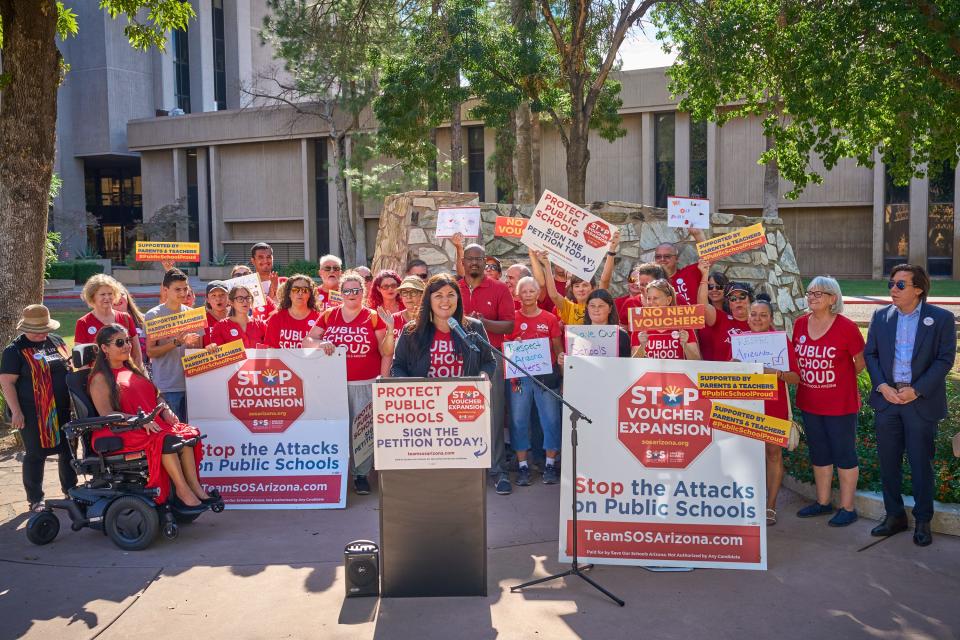
“She's very aware that it's her job to ensure this program is successful,” Garcia said. But Hoffman’s also in a position to identify issues in the program that should be addressed, she said.
Horne said low-income students should have as much access to private schools as wealthy students. But he also admitted the expected average voucher amount would likely leave a tuition gap of several thousand dollars for most families, who would have to pick up that part of the tab.
Horne would not be pinned down on whether he would support an income-related cap on the voucher program to ensure only low-income families could access it. Even if he did, it’s not a change he could make himself. He would have to ask the Legislature to rewrite the law to limit it to low-income families.
Still, his oversight of an earlier voucher program is evidence that the superintendent can find opportunities for administrative creativity.
Who will benefit?: Who is applying for private school vouchers? What we know
A voucher program for students with disabilities and students living in foster care had its funding cut by the Legislature after the program was ruled unconstitutional, according to Republic reporting from the late-2000s. So that voucher recipients could remain enrolled at private schools through the end of the school year, Horne put forward a proposal, with then-House Speaker Jim Weiers, to fund the program outside of the normal state budget process.
Superintendent’s role in education funding
The school's chief submits a budget request on behalf of the Arizona Department of Education each year. The state education board and the charter board also submit requests. But the money allotted for the administration of these entities is ultimately in the hands of the governor and Legislature.
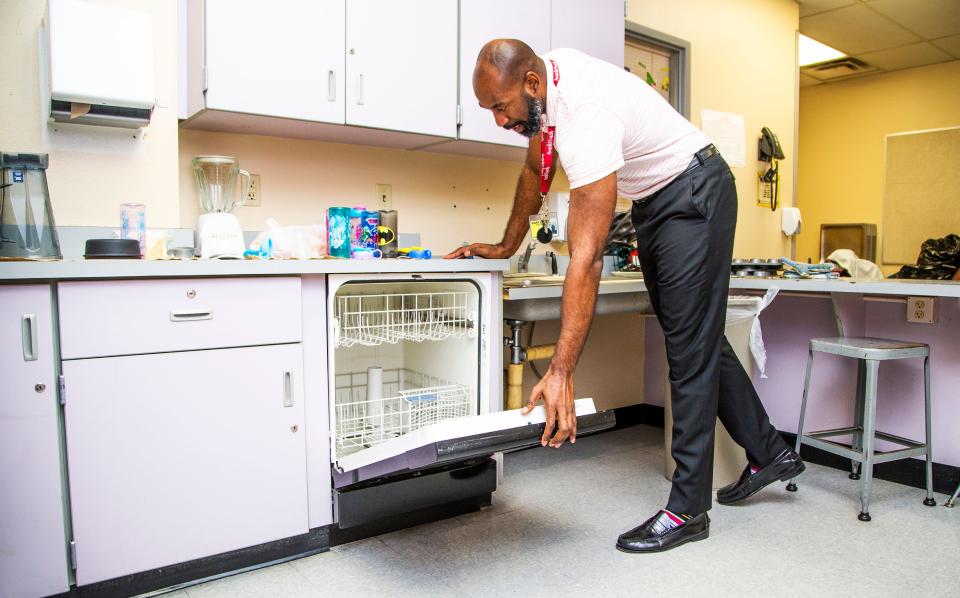
Similarly, school funding formulas can only be changed by the Legislature and governor or by voters.
That means the superintendent has a limited role related to school funding. They can lobby for what they see as school needs and priorities, and make sure schools know what they have to do to access state and federal funds.
"The superintendent doesn't make the rules, they implement the rules," said Chuck Essigs, director of governmental relations at the Arizona Association of School Business Officials. "They help the school districts to make sure they get the funding they are entitled to."
Horne said he believes schools need more funding but wants any increase in education dollars coupled with accountability measures to ensure districts don’t spend too much on administration. Horne said he would also advocate for more money for high-performing schools: “Rewarding excellence, not rewarding failure.”
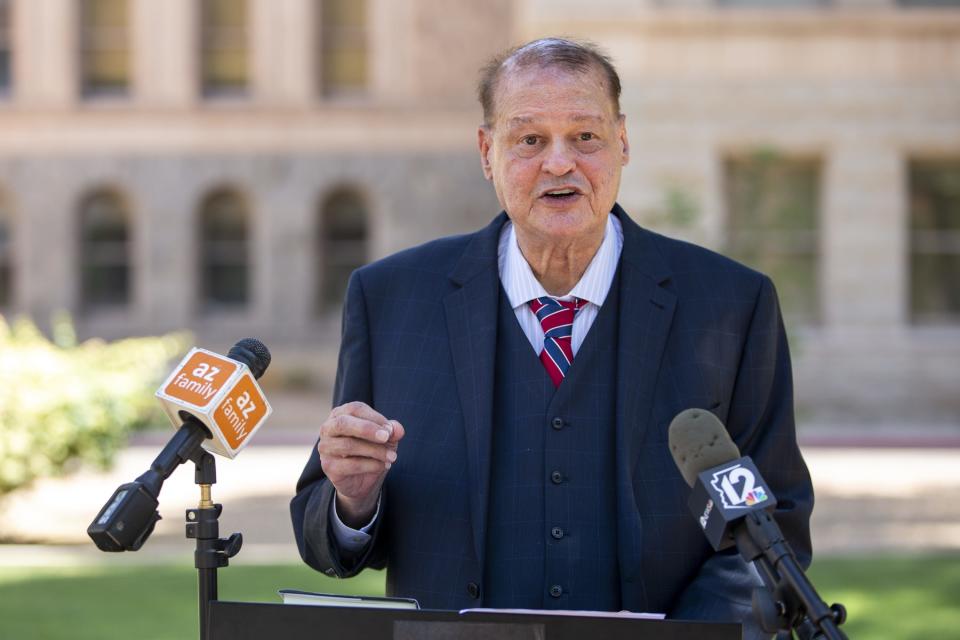
Accountability efforts would need to be set by the Legislature or the Board of Education. Right now, the Auditor General publicly reviews district spending but does not provide this service for charter schools.
During his superintendent terms, Horne generally defended the school funding status quo for district schools but pushed for charter schools to get more money.
In the mid-2000s, he put forward a legislative proposal to bring charters closer to funding parity with district schools.
In 2009, amid the Great Recession and as state budget cuts looming, the Associated Press reported Horne said some districts were overreacting to the possibility of school funding cuts. Federal stimulus money could keep cuts to a minimum, he said.
Ultimately, Arizona cut more funding to K-12 public schools than any other state from 2008 to 2015. While the state's contribution has rebounded since then, it has not kept up with rising costs and enrollment growth, making Arizona one of the lowest-ranked states in per-pupil funding.
Hoffman has pushed for more school funding from the Legislature during her time in office. But with a Republican majority, she hasn't had powerful legislative allies.
In her 2021 state of education speech, Hoffman called it "absurd" for Gov. Doug Ducey to propose tax cuts when schools were facing budget shortfalls. Her priority, she said at the time, was more state funding to cover school budget gaps, investing in training new teachers and funding counselors and social workers for schools.
She has also directed some additional money to previously under-resourced offices in the department. One of those is the Office for Indian Education.
Unable to convince the Legislature to fund the office, Hoffman directed federal relief funds to increase staff. That increased capacity brought the office to the Legislature's attention, which then invested $5 million.
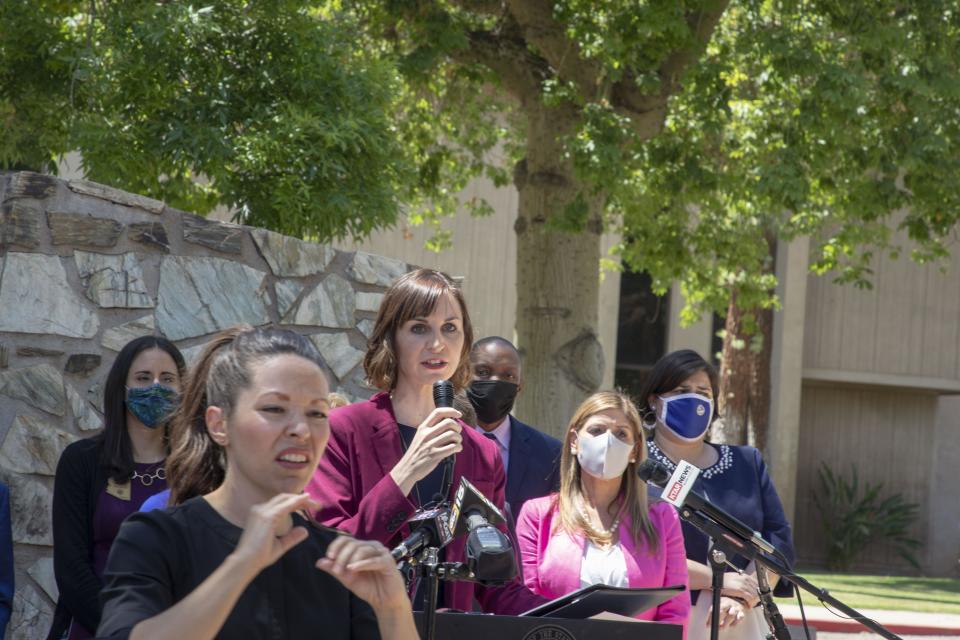
“It wasn't until I had that ESSER (Elementary and Secondary School Emergency Relief) COVID relief funding … with flexibility to utilize that for statewide initiatives” that there was the opportunity to invest $3 million in the Office of Indian Education, Hoffman said. “We’re showing what’s possible when this office is fully staffed.”
Addressing cultural conflicts
A sharp divide has emerged in Arizona about what families want from schools.
The COVID-19 pandemic sparked a new movement of parental interest in schools. Public health-related school closures, vaccines and masks have swirled together with ongoing debates about race, gender and sexuality to form the present parents’ rights movement.
Essigs said this is a new dynamic, and he is not sure of the role the superintendent should play.
"Part of the problem we face today is a lot of things people claim schools are doing aren't happening in local school districts," he said. "I think that the superintendent has emphasized the good things that are happening in school districts across Arizona but still in some places some individuals continue to say problems exist that are not documented."
Horne and Hoffman offer two distinct paths for managing the divisive education environment.
Horne has leaned into concerns about race in the classroom. He rejects critics who say that trying to ban instruction about race and history might deepen divisions on that issue.

Students in Arizona, Horne said, “need to be taught in prejudice reduction programs, not programs that emphasize the importance of race.” He said schools need “programs that teach students to treat each other as individuals with total respect and dignity."
Hoffman, during her term, has created community engagement councils that represent historically underserved student populations, including special education and LGBTQ students.
But she admits that she may not have an immediate answer for fixing the cultural conflicts surrounding schools.
“It’s devastating what we’re seeing across the state, especially at the school board level,” Hoffman said. “That does make it very challenging.”
Garcia, of the AEA, said Hoffman has consistently relayed a public message that families should respect educators and encouraged parents to visit schools and be part of their children’s education. She said that messaging helped address the concerns of some parents who were mistrustful of classroom dynamics.
“She’s really done an honorable job” of ensuring people understand the superintendent’s job and why it’s essential for them to support teachers, Garcia said.
Former superintendent Molera said the vitriol he has seen exchanged over social media about public education in recent years far outweighs the partisan wrangling of his time.
In the next superintendent, he said, he hopes to see someone who doesn’t only fight for their political position but “really wants to focus on good policies.”
To Molera, that means putting the interests of families and students above any others — even if they are criticized for it. He points to his efforts to revamp the state's standardized test, for which he said critics called him weak on accountability.
"You have to make it work on behalf of the schools, parents and students," he said.
Yana Kunichoff is a reporter on The Arizona Republic's K-12 education team. You can join the Republic's Facebook page here, and reach Yana at ykunichoff@arizonarepublic.com or follow her on Twitter @yanazure.
Support local journalism. Subscribe to azcentral.com today.
This article originally appeared on Arizona Republic: Can the Arizona superintendent candidates fulfill their promises?
